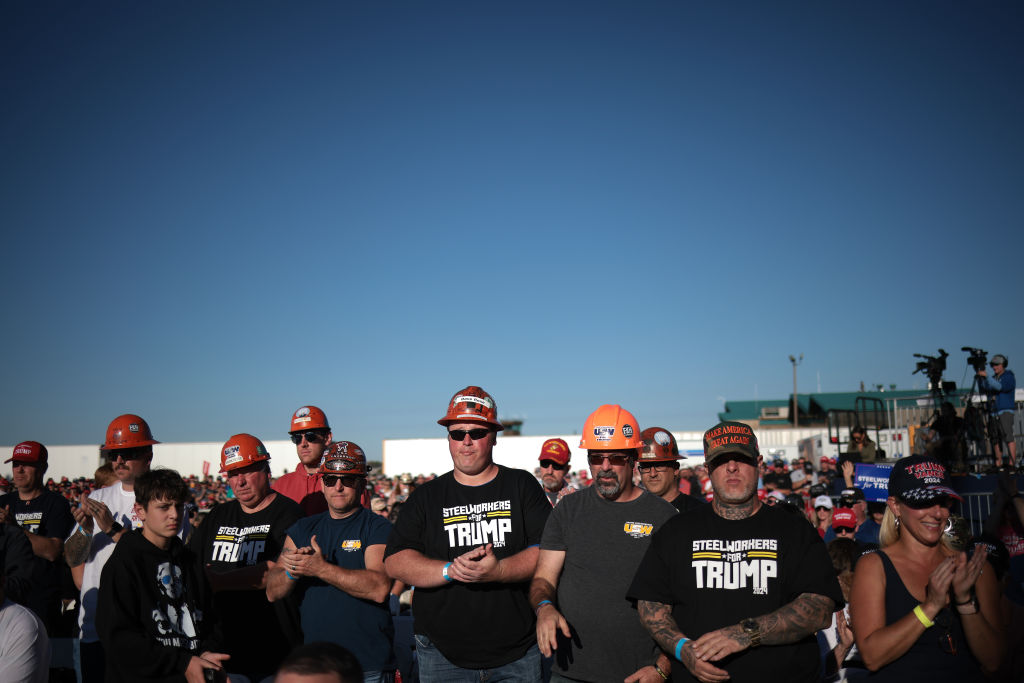Transcript: Gov. John Kasich on "Face the Nation," June 3, 2018
President Trump enraged Canada, Mexico and the European Union last week by imposing tariffs on steel and aluminum imports to the U.S., which Canadian Prime Minister Justin Trudeau called "insulting and unacceptable."
Ohio Gov. John Kasich, a Republican, disagrees with the president's tariffs. He joined us to discuss trade, Republicans in Congress, North Korea and more.
The following is a transcript of the interview with Kasich that aired Sunday, June 3, 2018, on "Face the Nation."
MARGARET BRENNAN: We want to go to Westerville, Ohio just outside of Columbus and to the Republican governor of Ohio John Kasich. Governor welcome to "Face the Nation." These tariffs are popular with many Ohio steelworkers and even with your home Senator Sherrod Brown, yes a Democrat, but he supports the president's efforts here. Why do you think some of these working class Ohioans are wrong?
GOV. KASICH: Well because there is almost unanimity among Republicans, Democrats, all the people that study these things. You get into trade wars. The president of France said when you have when you take nationalism as approach to your economy it can lead to war. And we know what happened when we've imposed all these barriers on people in the past, the economy slowed down, people paid higher prices and then beyond that it increases acrimony among our friends. I mean we're punishing our friends. If they were cheating that's one thing, but they slap this on under a phony excuse, we're going alone on that. We withdrew from the Paris Accords. We withdrew from the Iranian deal which they are furious about. We didn't get in the Pacific trade agreement. We're going it alone. It's not America First it's America alone. And I think it's just not good policy in fact it borders on dangerous in my opinion.
MARGARET BRENNAN: Well your point is taken on the international scale. But for those steel workers in Youngstown, Ohio I mean how do you explain how to protect their jobs? Is this just--
GOV. KASICH: Well, yeah.
MARGARET BRENNAN: --an industry that can't be saved at this point?
GOV. KASICH: Well the first thing is, is that the industry is modernizing. They are more competitive. We have 40 million Americans at work and trade related jobs. Most of the export activities in this country are done by small and medium sized businesses. What this is going to do is cost consumers, slow down the economy. It's nuts. It's not prudent. It's not smart. And those very steelworkers will find out that things will cost more and what they will buy- buy will not be good. So I hope the administration will back away from this policy.
MARGARET BRENNAN: Have you calculated what the cost to Ohio would be if Canada and Mexico and the European Union go ahead with these tariffs?
GOV. KASICH: It's not just my state that is involved here. It's our nation. It has significant consequences for us here at home, not only just economically but geopolitically. When did it ever make sense for anybody powerful, rich or famous to say I'll just go it alone? And that's what we're doing and it's very, very concerning. And frankly, my party the Republican Party, has been in favor of free trade as long as I can remember.
MARGARET BRENNAN: -how do you make the case to bring people back to the party of free trade? because the President ran on this platform and it was popular. So how do you convince people that, that Reagan era of free trade isn't a relic of the past?
GOV. KASICH: Well because when we take a look at what free trade has done for us, it's lifted more people out of poverty all over the globe. It's produced better products for us here in the United States because of competition and it's lowered the prices for consumers. But walking away from free trade and going to protectionism is going to yield, again, products that are not as good, products that are going to cost more. And it's not going to lead to kind of the ingenuity that the American worker is capable of.
MARGARET BRENNAN: Well certainly Republican leadership in Congress would agree with you on those principles. They're not happy about what the president is doing but they're also not stopping him or they're unable to stop these tariffs.
GOV. KASICH: Well, look, Margaret, I have been frankly shocked at the fact that our leaders think they've got to, they have to ask permission from the president to do anything. This is very foreign to me. It's alien to me. When you are elected to the United States Senate or the United States House of Representatives you have a duty to represent your district, but most important, represent your country, not to just be thinking about your political party.
MARGARET BRENNAN: So what should--
GOV. KASICH: And the fact that whether it's-
MARGARET BRENNAN: Mitch McConnell and Paul Ryan be doing right now?
GOV. KASICH: I think they ought to make it very clear that they're not going to just sit back and tolerate this, that they're going to do whatever they can do legislatively to send a clear signal-- the same way they ought to be doing these things on the issue of DACA, those are the Dreamers that are here. You know it's like, 'Well we don't want to pass an immigration bill because the president might veto it.' Well send it to him. Let him veto it. I mean that's your job as a congressman. And I have to tell you that I'm very proud of this group of Republicans who are saying that they're going to do everything they can to get a vote on immigration reform and protecting the Dreamers.
MARGARET BRENNAN: The supporters of the president say though that immigration and dealing with it now may be a losing prospect when it comes to the November races, particularly on this issue of DACA. There's a tremendous debate within the party about it right now. Why do you think that is wrong?
GOV. KASICH: Because, Margaret, we have 800,000 people who came to this country as children. They violated no law. They are innocent people who came to this country who are great contributors to what is happening in this country. They're part of our fabric. And now we're going to turn around and ship them out? And you know, Margaret, everything in life is not about the next election. It is, this is, I mean, an injustice to these people. And frankly the idea that people will stand up against their party or stand up against the president, I respect that.
MARGARET BRENNAN: Are you going to challenge the president in 2020? I mean, how do you build a coalition of Republicans--
GOV. KASICH: I don't know.
MARGARET BRENNAN: --the same Republicans John Boehner said are taking a nap right now.
GOV. KASICH: Margaret, I don't know. I don't know what I'm going to do in 2020. I know that I believe that I need to be part of creating a network of people who seek the truth, who are objective and rational. And that's my interest right now. As to what that's going to mean, how that manifests itself, I'm really not quite sure.
MARGARET BRENNAN: but for you immigration and free trade need to be at the heart of it it, sounds like you're saying.
GOV. KASICH: Well I think that's important. The problem with our national debt is skyrocketing. I'm worried about our foreign policy. I'm very, very concerned about this upcoming meeting with- with North Korea. I think this is a seminal meeting. I think we have to be extremely careful. Every time we've entered an agreement they've backed away from it. They've misled us and we cannot let the pressure up on North Korea. So you know, promises don't matter. To me has to be a verifiable agreement--
MARGARET BRENNAN: Okay.
GOV. KASICH: --a verifiable agreement and if we relax the sanctions at all, we ought to be committed to be able to re-impose them if the North Koreans break their word. This is very, very serious, Margaret. If you let the pressure up I am very, very fearful that we will just find ourselves in this same situation or a worse situation down the road. I'm glad they're talking. I'm glad they're meeting. But don't let the pressure up until we get verifiable results. Anything other than that will weaken our position and strengthen them.
MARGARET BRENNAN: But--
GOV. KASICH: And we know with the history of that regime is.
MARGARET BRENNAN: You've clearly been a critic of the president, but in this case do you think his unpredictability has been an asset?
GOV. KASICH: Well look I praise him when I think he does a good job and I'm critical when- when I think he's- he's off the mark. And in terms of this I think keeping the pressure on, having the sanctions placed, probably the work that they've done to communicate with China, and so I'd give him credit for putting the pressure on for sure. But now that it's there we can't be in a hurry to get an agreement. If we can get some verifiable agreements, fine, we can loosen things but there has to be a real gain and not just a PR show. That's just not going to work for the best interests of our country and the world.
MARGARET BRENNAN: Governor thank you very much for your time.
GOV. KASICH: OK Margaret, thank you.



